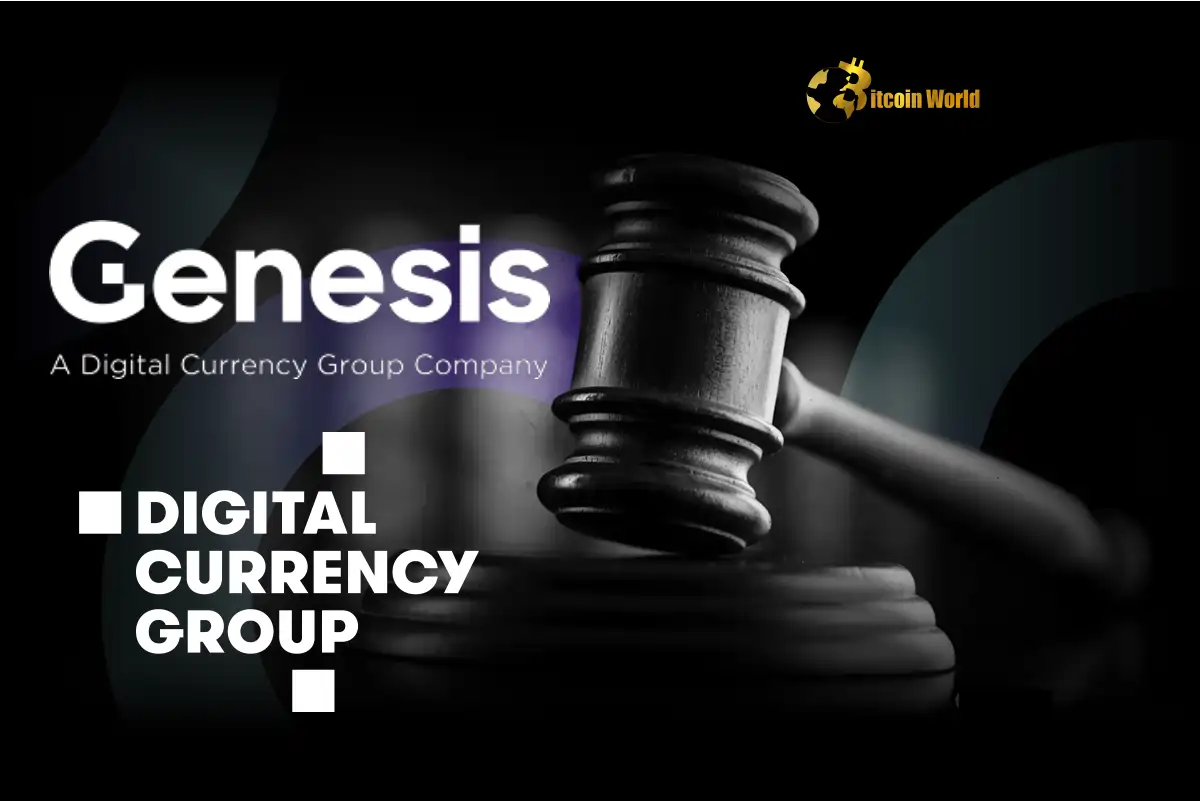BitcoinWorld

Japan Crypto Regulations: A Crucial Shift Towards Investor Protection
The cryptocurrency world is always buzzing with developments, but few are as significant as shifts in national regulatory frameworks. A pivotal moment is unfolding in the Land of the Rising Sun, as Japan’s Financial Services Agency (FSA) is actively exploring a reclassification of digital assets. This move signals a crucial step towards robust Japan crypto regulations, aiming to redefine how cryptocurrencies are perceived and governed within one of the world’s leading economies. For anyone invested in or simply curious about the future of digital finance, understanding these proposed changes is paramount.
Why are Japan Crypto Regulations Undergoing a Transformation?
On July 31, a dedicated working group convened by Japan’s Financial Services Agency embarked on a significant mission: to explore the reclassification of crypto assets. Historically, cryptocurrencies in Japan have primarily been treated as “payment tools” under the Payment Services Act. However, the rapid evolution and expansion of the global crypto market, coupled with increasing investor participation, have highlighted a pressing need for a more comprehensive regulatory approach. The primary objective behind this potential reclassification is to bolster investor protections significantly.
The current framework, while providing a baseline for exchange operations and anti-money laundering (AML) measures, may not fully address the complexities and risks associated with crypto assets when they are traded as speculative instruments or long-term investments. As digital assets gain broader acceptance and attract more diverse types of investors, including institutional players, the regulatory landscape needs to adapt to ensure market integrity and prevent potential financial instability. This proactive stance by the FSA underscores Japan’s commitment to fostering a secure and transparent environment for digital asset innovation while safeguarding its citizens.
Understanding the Shift: Payment Tools vs. Investment Products
The core of Japan’s proposed regulatory overhaul lies in changing the fundamental classification of crypto assets. Currently, under the Payment Services Act, cryptocurrencies are largely viewed through the lens of their utility as a means of exchange or payment. This classification primarily focuses on aspects like:
- Exchange Registration: Requiring crypto exchanges to register with the FSA.
- AML/CFT Measures: Implementing strict anti-money laundering and counter-terrorist financing protocols.
- Basic Consumer Protection: Ensuring operational stability of exchanges and handling of customer assets.
However, the FSA is now considering a shift towards treating crypto assets as “investment products.” This reclassification would move their oversight from the Payment Services Act to the more stringent Financial Instruments and Exchange Act (FIEA). The FIEA is designed to regulate traditional securities, derivatives, and other financial instruments, imposing a much higher standard of investor protection and market conduct. This includes:
- Disclosure Requirements: Mandating detailed disclosures from issuers and platforms, similar to stocks or bonds.
- Suitability Rules: Ensuring that investment products are suitable for the investor’s risk profile.
- Segregation of Client Assets: Stricter rules on how customer funds are held and managed.
- Marketing and Sales Regulations: Tighter controls on how crypto products are advertised and sold to the public.
- Stronger Enforcement Powers: Providing the FSA with more robust tools to investigate and penalize misconduct.
This reclassification acknowledges the dual nature of many cryptocurrencies – while they can function as payment tools, their primary use for many participants is speculative investment. By aligning crypto assets with traditional investment products, Japan aims to provide a regulatory framework that more accurately reflects their market behavior and inherent risks.
The Role of the Financial Instruments and Exchange Act (FIEA) in Japan Crypto Regulations
Shifting crypto oversight to the Financial Instruments and Exchange Act (FIEA) is a significant move that will bring a new level of rigor to Japan crypto regulations. The FIEA is Japan’s cornerstone legislation for regulating securities and other financial instruments, designed to ensure fairness, transparency, and investor protection in traditional financial markets. By bringing crypto assets under its purview, the FSA aims to apply a similar standard of scrutiny and oversight.
What does this mean in practical terms? It implies that entities dealing with crypto assets, whether exchanges, brokers, or potentially even certain decentralized finance (DeFi) protocols, might be subjected to rules previously reserved for banks, brokerage firms, and asset managers. This could include:
- Licensing Requirements: More stringent and potentially complex licensing processes for crypto businesses.
- Capital Adequacy: Requirements for firms to hold sufficient capital to cover potential losses and operational risks.
- Internal Controls: Mandating robust internal governance, risk management, and compliance frameworks.
- Market Manipulation Prevention: Stronger measures to detect and prevent activities like wash trading or insider trading.
- Client Asset Protection: Enhanced rules for the segregation and safeguarding of customer funds, potentially requiring third-party custodianship.
The FIEA’s comprehensive nature means that it covers a wide array of financial activities, from issuance to trading and advisory services. Applying this framework to crypto would signify a maturation of the Japanese crypto market, moving it further into the mainstream financial system and away from its more nascent, unregulated past. This shift is not just about rules; it’s about embedding trust and accountability into the digital asset ecosystem.
What Benefits Will Enhanced Japan Crypto Regulations Bring?
The proposed strengthening of Japan crypto regulations, particularly by moving oversight to the FIEA, promises a multitude of benefits for various stakeholders within the digital asset ecosystem. These advantages extend beyond mere compliance, aiming to foster a healthier, more stable, and ultimately more attractive market.
Key benefits include:
- Enhanced Investor Protection: This is arguably the primary driver. With stricter disclosure requirements, suitability rules, and robust client asset segregation, individual investors will have greater transparency and better safeguards against fraud, mismanagement, and market manipulation. This could significantly reduce the risks associated with investing in volatile digital assets.
- Increased Market Integrity and Stability: By applying the FIEA’s stringent rules, the FSA aims to curb illicit activities and create a more orderly market. This includes measures against insider trading, market manipulation, and other unfair practices, leading to a more reliable and predictable trading environment.
- Boosted Institutional Adoption: A clearer, more robust regulatory framework often acts as a green light for institutional investors – such as pension funds, hedge funds, and traditional financial institutions – who typically require regulatory clarity and strong investor protections before entering a new asset class. This could unlock significant capital flow into the Japanese crypto market.
- Fostering Innovation with Confidence: While some might fear over-regulation, a well-defined framework can actually encourage responsible innovation. Companies will have clearer guidelines on what is permissible, reducing regulatory uncertainty and allowing them to build products and services with greater confidence, knowing they are operating within established legal boundaries.
- International Harmonization: As global regulators grapple with crypto, Japan’s move could set a precedent or contribute to a more harmonized international approach. By aligning with standards typically applied to traditional finance, Japan strengthens its position as a responsible and forward-thinking financial hub.
- Improved Public Trust: Greater regulatory oversight can significantly enhance public trust in cryptocurrencies. As more people feel secure about the legitimacy and safety of digital assets, broader adoption among the general populace becomes more likely.
Ultimately, these enhanced regulations are designed to transform the crypto market from a wild frontier into a more mature, reliable segment of the broader financial landscape, benefiting both new entrants and existing participants.
Potential Challenges and Industry Reactions to Japan Crypto Regulations
While the proposed changes to Japan crypto regulations offer significant benefits, they are not without potential challenges and have naturally elicited a range of reactions from the industry. Balancing innovation with regulation is a delicate act, and overzealous rules could inadvertently stifle growth or push businesses offshore.
Some of the key challenges and concerns include:
- Compliance Burden: Moving under the FIEA will impose substantially higher compliance costs and operational complexities on crypto businesses. Smaller startups or those with limited resources might struggle to meet the stringent licensing, capital, and reporting requirements, potentially leading to market consolidation or even exits.
- Defining “Investment Product”: The precise definition of what constitutes an “investment product” in the context of digital assets can be ambiguous. Is every token an investment? What about utility tokens, NFTs, or stablecoins? Clarity on these distinctions will be crucial to avoid unintended consequences or regulatory arbitrage.
- Impact on Decentralization: One of the core tenets of many crypto projects is decentralization. Applying traditional financial regulations, which are designed for centralized entities, to decentralized protocols (DeFi) presents a unique challenge. Regulators will need to navigate how to oversee these systems without undermining their fundamental structure.
- Risk of Stifling Innovation: Critics argue that overly strict regulations could deter new projects and technological advancements. If the compliance hurdles are too high, Japan might miss out on becoming a hub for cutting-edge crypto innovation, with businesses choosing more lenient jurisdictions.
- Market Response: Initial market reactions could be mixed. While increased regulatory clarity might attract institutional money, some retail investors or more speculative traders might perceive it as a reduction in freedom or opportunity.
Industry stakeholders, including crypto exchanges, blockchain developers, and investment firms, are closely monitoring these developments. Many welcome the clarity and increased legitimacy that robust regulation can bring, particularly those aiming for mainstream adoption. However, there’s a strong desire for practical, clear guidelines that don’t disproportionately burden the industry. Dialogue between the FSA and the crypto community will be vital to ensure the new framework is effective, balanced, and future-proof.
How Do Japan’s Crypto Regulations Compare Globally?
Japan has long been recognized as a trailblazer in crypto regulation, being one of the first major economies to establish a comprehensive framework for digital assets. The current proposed changes to Japan crypto regulations highlight its ongoing commitment to maintaining a leading, yet cautious, stance in the global arena. To understand the significance of this move, it’s useful to compare Japan’s approach with other major jurisdictions:
| Jurisdiction | Key Regulatory Approach | Current Classification Trend |
|---|---|---|
| Japan | Early adopter of exchange licensing. Moving towards FIEA for investment products. | Shift from “payment tools” to “investment products” for enhanced investor protection. |
| United States | Fragmented approach with multiple agencies (SEC, CFTC, Treasury, state regulators). | Ongoing debate on whether most cryptocurrencies are securities (SEC view) or commodities (CFTC view). Enforcement-led. |
| European Union | Pioneering comprehensive framework with MiCA (Markets in Crypto-Assets Regulation). | MiCA aims for harmonized classification and regulation across all member states, covering various crypto-asset types. |
| United Kingdom | Developing a phased approach, focusing on stablecoins and broader crypto assets. | Distinguishing between security tokens, e-money tokens, and unregulated tokens. |
| Singapore | Progressive but cautious, focusing on licensing and AML/CFT for digital payment token services. | Generally views tokens based on their function (security, utility, payment). |
Japan’s move to explicitly classify crypto as investment products under its existing securities law places it among the more proactive nations seeking to integrate digital assets into traditional financial oversight. Unlike the US, which has faced criticism for its “regulation by enforcement” approach, Japan is taking a legislative path to provide clearer guidelines. Compared to the EU’s MiCA, which is a bespoke crypto regulation, Japan is leveraging its existing, robust financial instruments law, showcasing a unique adaptation strategy. This positions Japan as a key player in shaping the global discourse on how to effectively govern the rapidly evolving crypto landscape.
Actionable Insights for Crypto Enthusiasts and Businesses
As Japan crypto regulations evolve, staying informed and adapting is key for anyone involved in the digital asset space. Whether you’re an individual investor, a startup, or an established business, here are some actionable insights to navigate the changing landscape:
- For Individual Investors:
- Due Diligence is Paramount: With enhanced protections, still exercise caution. Understand the specific regulations applicable to the platforms you use and the assets you invest in.
- Choose Licensed Platforms: Prioritize using crypto exchanges and service providers that are fully licensed and compliant with Japanese regulations. This offers a significant layer of security.
- Understand Risk Disclosures: Pay close attention to risk disclosures provided by platforms. The FIEA framework will likely mandate more comprehensive risk warnings.
- Stay Updated: Regulatory changes can impact asset valuations and market access. Follow reputable news sources and official FSA announcements.
- For Crypto Businesses and Startups:
- Prepare for Stricter Compliance: If your business operates in Japan or serves Japanese customers, begin assessing how FIEA-level compliance requirements (e.g., capital adequacy, internal controls, disclosure) might impact your operations.
- Seek Legal Counsel: Engage with legal experts specializing in Japanese financial law and crypto regulations to ensure your business model remains compliant.
- Engage with Regulators: Participate in industry consultations or working groups if opportunities arise. Constructive dialogue can help shape pragmatic regulations.
- Focus on Investor Protection: Embed robust investor protection mechanisms into your services proactively. This includes transparent fee structures, clear terms of service, and secure asset management.
- Innovation within Bounds: While compliance is key, look for ways to innovate within the new regulatory framework. Clearer rules can foster trust and open doors for new, compliant products and services.
The shift towards a more regulated environment in Japan is not a barrier but an evolution. By embracing these changes, participants can contribute to a more secure, transparent, and ultimately, more sustainable crypto ecosystem.
The Future Landscape of Japan Crypto Regulations
The current deliberations by Japan’s FSA regarding a tougher stance on Japan crypto regulations mark a significant inflection point, not just for the domestic market but potentially for global digital asset governance. This move suggests a future where crypto assets are increasingly integrated into the traditional financial system, shedding their “wild west” image and embracing a framework built on transparency, accountability, and investor protection.
We can anticipate several trends shaping the future landscape:
- Increased Mainstream Adoption: As regulatory clarity grows and investor confidence strengthens, more traditional financial institutions, corporations, and retail investors are likely to enter the crypto space, viewing it as a legitimate asset class.
- Maturity of Crypto Businesses: Companies operating in Japan will need to professionalize their operations, investing heavily in compliance, risk management, and robust governance structures. This will lead to a more mature and resilient industry.
- Focus on Specific Crypto Asset Classes: The regulations might evolve to create specific frameworks for different types of crypto assets, such as stablecoins, NFTs, or DeFi protocols, recognizing their unique characteristics and risks.
- Continued International Collaboration: Japan will likely continue to play a leading role in international forums, sharing its regulatory insights and collaborating with other nations to develop harmonized global standards for crypto.
- Technological Solutions for Compliance: The demand for RegTech (Regulatory Technology) solutions tailored for crypto compliance will likely surge, helping businesses meet stringent requirements efficiently.
Ultimately, Japan’s proactive approach is about striking a balance: harnessing the transformative potential of blockchain and digital assets while mitigating the associated risks. The journey is ongoing, but the direction is clear – towards a regulated, secure, and integrated future for crypto within the broader financial ecosystem.
In conclusion, Japan’s Financial Services Agency’s exploration into reclassifying crypto assets from payment tools to investment products under the Financial Instruments and Exchange Act represents a monumental step in the evolution of digital asset regulation. This strategic shift is driven by a clear imperative: to significantly bolster investor protections amidst the dynamic growth of the global crypto market. By aligning crypto with traditional financial instruments, Japan aims to foster greater market integrity, encourage institutional participation, and enhance public trust, paving the way for a more secure and stable digital finance ecosystem. While challenges like compliance burdens and the nuanced definition of “investment products” exist, Japan’s pioneering and pragmatic approach is setting a significant precedent. This move underscores a global trend towards integrating cryptocurrencies into established financial oversight, ensuring that innovation proceeds hand-in-hand with robust consumer safeguards. For all participants, staying informed and adapting to these evolving Japan crypto regulations will be key to thriving in this new era of digital finance.
Frequently Asked Questions (FAQs)
1. What is the main change proposed by Japan’s FSA regarding crypto assets?
Japan’s Financial Services Agency (FSA) is exploring reclassifying crypto assets from primarily “payment tools” under the Payment Services Act to “investment products” under the more stringent Financial Instruments and Exchange Act (FIEA).
2. Why is Japan reclassifying crypto assets?
The primary goal is to significantly bolster investor protections amidst the rapid global growth of the crypto market. The current framework is seen as insufficient for assets increasingly used for speculative investment rather than just payments.
3. What is the Financial Instruments and Exchange Act (FIEA)?
The FIEA is Japan’s comprehensive law for regulating traditional securities, derivatives, and other financial instruments. It imposes higher standards for disclosure, suitability, client asset segregation, and market conduct.
4. How will this affect individual crypto investors in Japan?
Individual investors are expected to benefit from enhanced protections, including more transparent disclosures, stricter rules on how their assets are handled, and greater safeguards against fraud and market manipulation. They should prioritize using platforms compliant with the new Japan crypto regulations.
5. What are the potential challenges for crypto businesses under the new rules?
Challenges include higher compliance costs, increased operational complexities, the need for clearer definitions of “investment products,” and concerns about how traditional regulations will apply to decentralized finance (DeFi) protocols without stifling innovation.
6. How does Japan’s approach compare to other countries like the US or EU?
Japan is taking a proactive legislative approach, integrating crypto into existing robust financial laws. This contrasts with the US’s fragmented, enforcement-led approach and the EU’s bespoke MiCA regulation, positioning Japan as a leader in adapting traditional finance laws to digital assets.
Did you find this deep dive into Japan’s evolving crypto regulations insightful? Share this article with your network on social media to spread awareness about these crucial developments in the global digital asset space!
To learn more about the latest explore our article on key developments shaping the crypto market’s future regulatory landscape.
This post Japan Crypto Regulations: A Crucial Shift Towards Investor Protection first appeared on BitcoinWorld and is written by Editorial Team





